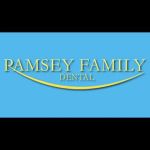Tooth Care Basics for Adults: A Guide to Maintaining Healthy Teeth
Maintaining strong and healthy teeth is a crucial part of overall well-being. As adults, many of us tend to focus on our daily routines, work, and personal lives, often overlooking the importance of regular tooth care. However, proper dental care is essential not only for preventing cavities and gum disease but also for maintaining a confident smile and ensuring long-term health. In this article, we will dive into the basics of tooth care for adults, providing practical tips and advice on how to keep your teeth healthy for years to come.
While good dental habits start at an early age, they are just as important in adulthood. Healthy teeth are essential for speaking, eating, and smiling confidently, which impacts both our personal and professional lives. Knowing how to care for your teeth correctly and making regular visits to the dentist are the foundation of long-term dental health. Whether you're looking to maintain a great smile or want to prevent common dental issues, this guide will help you understand the best practices for oral hygiene and more.
Why Proper Tooth Care is Essential for Adults
As we grow older, the importance of proper tooth care becomes even more apparent. Poor oral hygiene can lead to a variety of issues, including tooth decay, gum disease, and even tooth loss. But it’s not just about aesthetics—oral health is linked to overall health. Studies have shown that untreated gum disease can increase the risk of heart disease, diabetes, and other systemic conditions. Thus, taking care of your teeth and gums goes beyond just having a great smile—it can have significant impacts on your overall well-being.
Adults are also at a higher risk of developing certain dental problems such as cavities and gum disease. As you age, your teeth naturally become more vulnerable to damage, especially if you have neglected oral care in the past. That's why understanding the basics of tooth care for adults is essential. By adopting the right habits, you can protect your teeth and enjoy better overall health throughout your life.
The Basics of Daily Oral Hygiene
One of the most important aspects of dental care for adults is establishing a consistent oral hygiene routine. This includes brushing your teeth at least twice a day, flossing regularly, and using mouthwash to maintain fresh breath and fight bacteria.
1. Brushing Your Teeth Correctly
Brushing your teeth is the first line of defense against plaque buildup, cavities, and gum disease. The American Dental Association recommends brushing your teeth for two minutes with fluoride toothpaste, ensuring that you reach all surfaces of your teeth. It’s also important to use the right toothbrush—soft bristles are gentler on your gums and enamel. Make sure to replace your toothbrush every three to four months, or sooner if the bristles are worn out.
2. Flossing: The Key to Clean Between Teeth
Flossing is essential for removing food particles and plaque buildup between your teeth where your toothbrush can’t reach. It’s recommended to floss at least once a day. You can use traditional string floss or floss picks, depending on what works best for you. Regular flossing helps prevent gum disease, cavities, and bad breath.
3. Using Mouthwash for Fresh Breath
Mouthwash is an effective way to kill bacteria, fight plaque, and freshen your breath. While mouthwash isn’t a substitute for brushing and flossing, it can enhance your oral hygiene routine. Opt for a mouthwash that contains fluoride and is antibacterial to ensure it provides maximum benefits.
Regular Dental Checkups
In addition to daily oral hygiene, regular dental checkups are a critical part of maintaining healthy teeth. Adults should visit their dentist at least once every six months for a professional cleaning and thorough exam. Dental professionals can spot early signs of tooth decay, gum disease, and other oral health issues before they become more serious. Regular visits allow you to address problems early, saving you time and money in the long run.
During your visit, your dentist will also provide a cleaning to remove plaque and tartar buildup that can’t be removed with regular brushing. This professional cleaning is essential for preventing gum disease and maintaining a healthy smile.
Diet and Its Impact on Tooth Health
Your diet plays a significant role in the health of your teeth and gums. Eating a balanced diet that’s rich in vitamins and minerals, particularly calcium and vitamin D, is important for maintaining strong teeth. Avoiding sugary foods and drinks is equally important, as sugar feeds the harmful bacteria in your mouth that cause tooth decay. Drinks like soda, coffee, and alcohol can also contribute to tooth staining, enamel erosion, and cavities.
Some foods, like apples, carrots, and celery, can help clean your teeth naturally while providing necessary nutrients. Dairy products, such as milk and yogurt, are rich in calcium, which strengthens teeth and bones. Incorporating these foods into your diet can help support your oral health.
Protecting Your Teeth with Proper Care During Sports or Physical Activities
If you participate in sports or physical activities, it's essential to take precautions to protect your teeth. Wearing a mouthguard is crucial, especially for contact sports like football, basketball, or boxing. Mouthguards help prevent damage from falls or collisions that can lead to chipped or broken teeth. If you’re engaging in activities like cycling, using a helmet with a faceguard can also provide protection for your mouth.
Protecting your teeth from physical harm is just as important as maintaining good oral hygiene. Consider consulting with your dentist to find the best mouthguard that fits your needs.
Dealing with Common Dental Issues
Even with the best care, dental issues can arise. It's important to be aware of common dental problems and how to handle them. For example, tooth sensitivity is a common issue that can be caused by worn enamel or gum recession. If you experience tooth sensitivity, your dentist may recommend a desensitizing toothpaste or fluoride treatments to protect your teeth. Regular checkups will help you identify and address such problems early, preventing them from worsening.
If you notice signs of gum disease, such as red, swollen gums that bleed easily, it’s important to seek dental care as soon as possible. Gum disease can progress to more serious conditions like periodontitis, which can result in tooth loss if left untreated. By staying on top of your oral health and visiting your dentist regularly, you can address problems before they escalate.
Conclusion: Taking Charge of Your Oral Health
Proper tooth care for adults is essential for maintaining a healthy and confident smile. By following basic oral hygiene practices, visiting the dentist regularly, and eating a balanced diet, you can help protect your teeth and gums from damage. Whether you’re concerned about preventing tooth decay or addressing existing dental issues, taking proactive steps can ensure that your smile remains healthy for years to come.
If you're interested in learning more about proper tooth care or need advice on specific dental treatments, visit Dentistry Toothtruth for expert resources and recommendations.







 Sunnymead Ranch Dental Center4.0 (465 review)
Sunnymead Ranch Dental Center4.0 (465 review) Courtney Hardin0.0 (0 review)
Courtney Hardin0.0 (0 review) Ramsey Family Dental5.0 (93 review)
Ramsey Family Dental5.0 (93 review) Cain Orthodontics, PC4.0 (95 review)
Cain Orthodontics, PC4.0 (95 review) Birch Lake Dental4.0 (258 review)
Birch Lake Dental4.0 (258 review) Legacy Family Dental4.0 (691 review)
Legacy Family Dental4.0 (691 review) The Importance of Oral Health Education During Pregnancy for a Healthy Pregnancy
The Importance of Oral Health Education During Pregnancy for a Healthy Pregnancy Best Tips for Brushing Your Teeth Properly for Healthy Gums: Essential Techniques for Oral Health
Best Tips for Brushing Your Teeth Properly for Healthy Gums: Essential Techniques for Oral Health Why Skipping Dental Checkups Can Lead to Bigger Oral Health Problems
Why Skipping Dental Checkups Can Lead to Bigger Oral Health Problems Advantages of Porcelain Dental Restorations
Advantages of Porcelain Dental Restorations How Can Diabetes Cause Tooth and Gum Problems? Preventing and Managing Oral Health Issues
How Can Diabetes Cause Tooth and Gum Problems? Preventing and Managing Oral Health Issues Healthy Habits for Promoting Good Oral Health and Hygiene: Tips for a Healthy Smile
Healthy Habits for Promoting Good Oral Health and Hygiene: Tips for a Healthy Smile